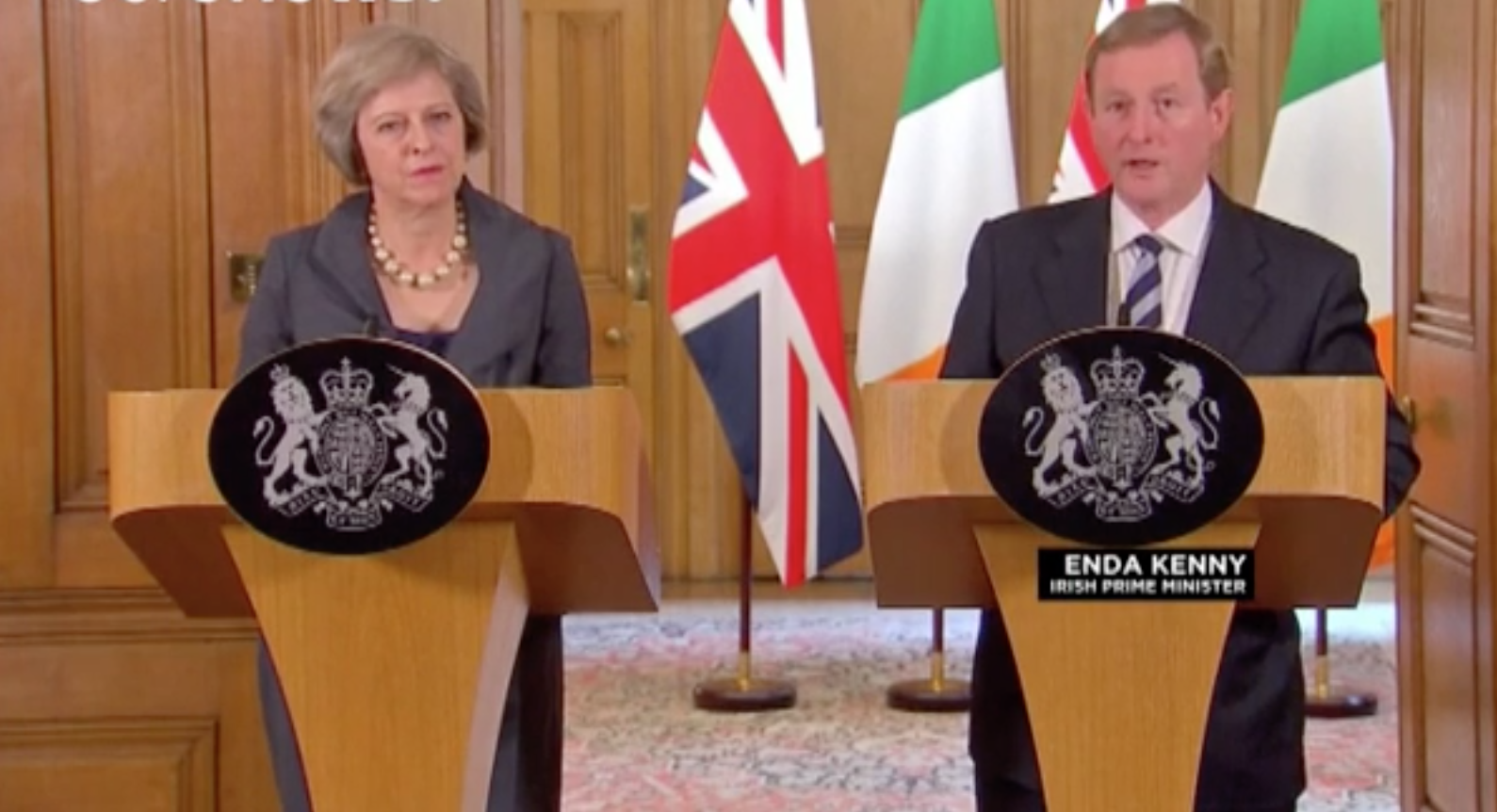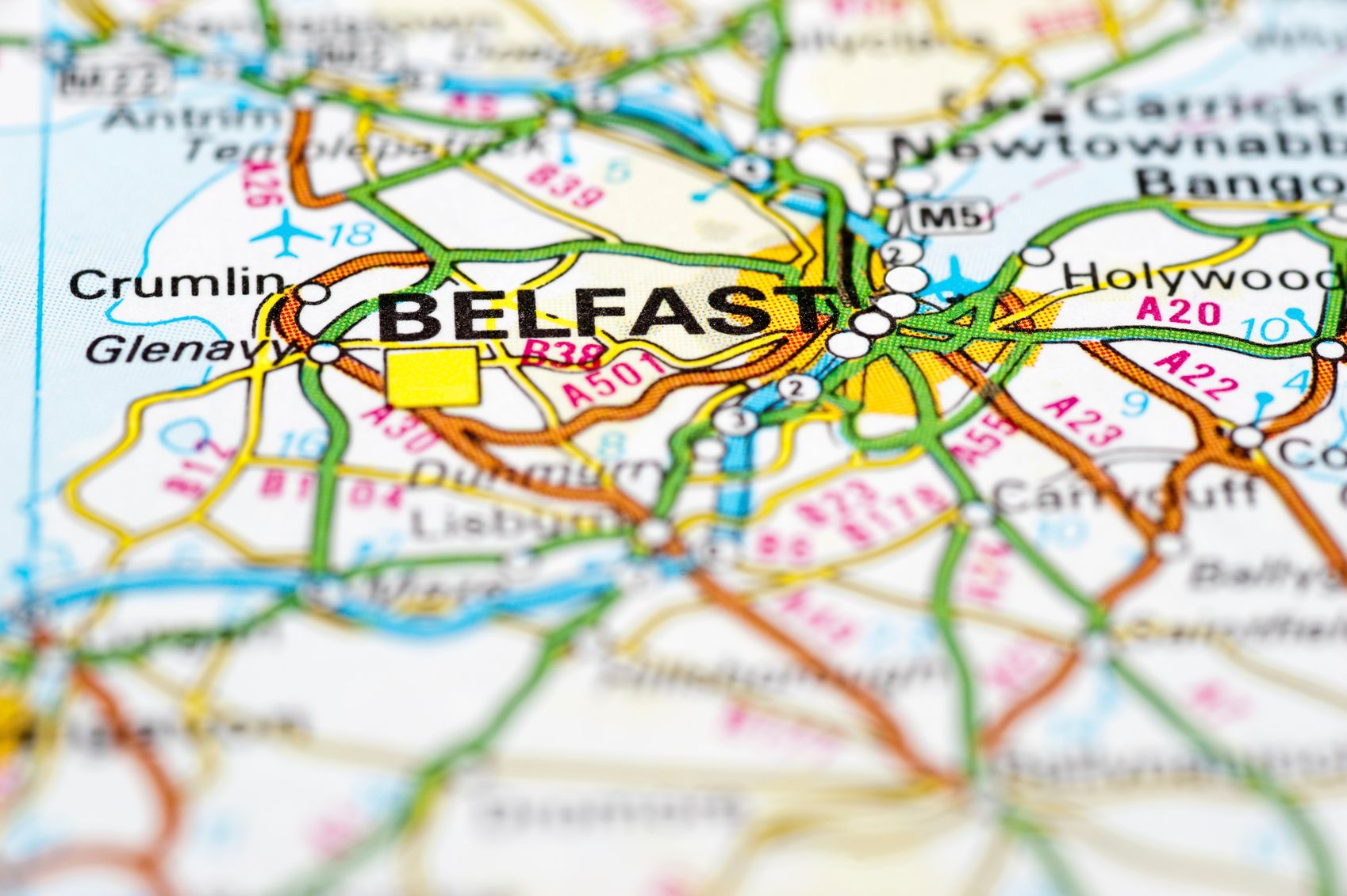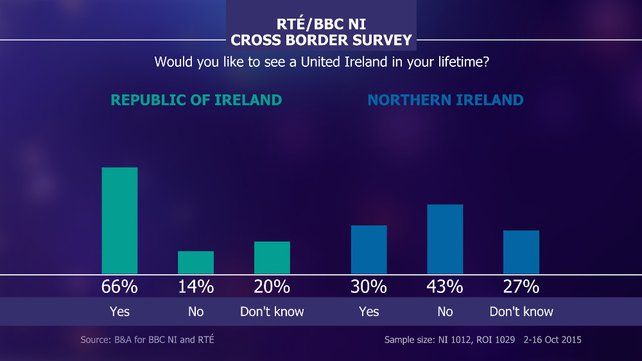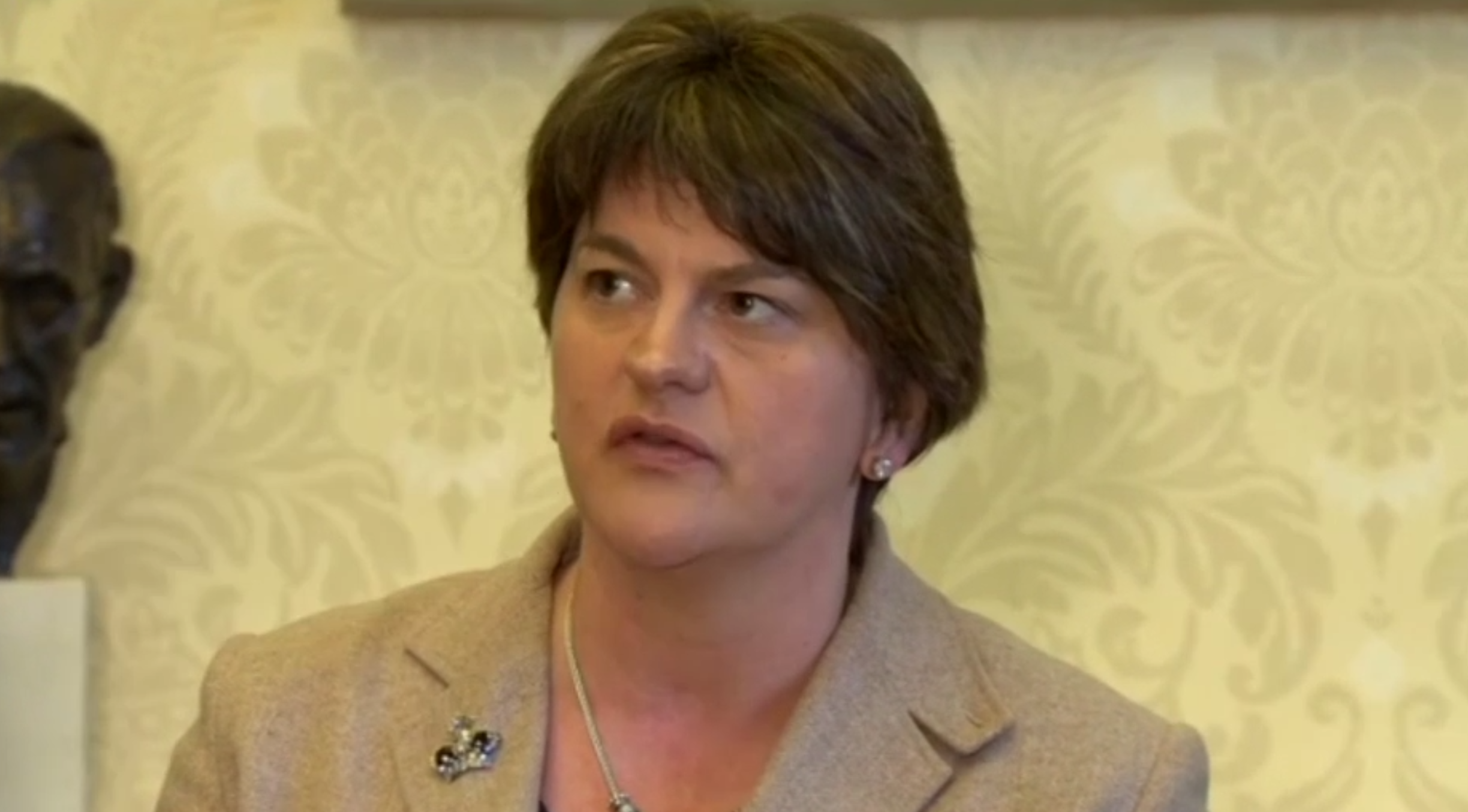

Share
30th July 2016
09:40am BST

 Since Brexit, the idea of a united Ireland has been gathering momentum and the reality of a border poll has become an issue for political and social discussion.
A few months ago it would have been considered incendiary to mention the prospect of a united Ireland. Brexit, however, has triggered the debate.
The actual process of uniting Ireland, as laid out in the Good Friday Agreement, appears straightforward. If it seems likely that a majority of Northern Irish citizens would vote to leave the UK, the Northern Ireland secretary must initiate a border poll.
If the results of the poll show that a majority want to leave the UK, a proposal to the UK parliament must be brought forward by the secretary and the process of Northern Ireland's exit begins.
There is, however, no indication in the Good Friday Agreement as to what amount of support needs to be shown by voters for a border poll to be called, or even how this support would need to be proven.
James Brokenshire, the current Northern Ireland secretary, has so far rejected all calls for a border poll.
Since Brexit, the idea of a united Ireland has been gathering momentum and the reality of a border poll has become an issue for political and social discussion.
A few months ago it would have been considered incendiary to mention the prospect of a united Ireland. Brexit, however, has triggered the debate.
The actual process of uniting Ireland, as laid out in the Good Friday Agreement, appears straightforward. If it seems likely that a majority of Northern Irish citizens would vote to leave the UK, the Northern Ireland secretary must initiate a border poll.
If the results of the poll show that a majority want to leave the UK, a proposal to the UK parliament must be brought forward by the secretary and the process of Northern Ireland's exit begins.
There is, however, no indication in the Good Friday Agreement as to what amount of support needs to be shown by voters for a border poll to be called, or even how this support would need to be proven.
James Brokenshire, the current Northern Ireland secretary, has so far rejected all calls for a border poll.
 A 2014 poll conducted by the Belfast Telegraph showed that the majority of voters in the North supported the calling of a border poll, but 59.8% would still vote 'No' to leaving the UK.
Two years later and the most recent online poll by the Belfast Telegraph tells a different story. When asked if there should be a border poll, 74% of people voted 'Yes' and when asked if they would vote for a united Ireland, 70% said they would.
In 2015 a North-South survey by the RTÉ/BBC NI revealed 66% of voters in the Republic would like to see a united Ireland in their lifetime. This figure dropped to 31% when voters were asked whether they would support unification if it meant having to pay higher taxes.
A 2014 poll conducted by the Belfast Telegraph showed that the majority of voters in the North supported the calling of a border poll, but 59.8% would still vote 'No' to leaving the UK.
Two years later and the most recent online poll by the Belfast Telegraph tells a different story. When asked if there should be a border poll, 74% of people voted 'Yes' and when asked if they would vote for a united Ireland, 70% said they would.
In 2015 a North-South survey by the RTÉ/BBC NI revealed 66% of voters in the Republic would like to see a united Ireland in their lifetime. This figure dropped to 31% when voters were asked whether they would support unification if it meant having to pay higher taxes.
 Source RTÉ.ie
Speaking outside the Dáil this week, TD Gerry Adams encouraged a 'reimagining of Ireland', but said that "it is not enough to engage just in the rhetoric, we want to see a referendum on Irish unity."
In a recent interview with VICE News, Adams cited the Scottish example saying; "It used to be in Scotland that it was men in kilts with big beards that wanted independence, and then it became a real life issue."
https://twitter.com/NiallSF/status/758286928282255364
Taoiseach Enda Kenny raised the need for a border poll immediately after the Brexit result was announced, but has since back-tracked. Speaking in the Dáil last week he said "there will be no border poll now. There is no evidence of a majority wanting to join the Republic."
Brexit's aftermath, however, has led to speculation that the loyalty to the UK in the North is softening, as a solid majority of citizens voted Remain in defiance of First Minister Arlene Foster, who led the Leave campaign.
Foster has also ruled out the possibility of a border poll, saying the calls for it to come were predictable but that the 'test for the border poll has not been met'.
It is unclear what the 'test' she is referring to consists of.
Source RTÉ.ie
Speaking outside the Dáil this week, TD Gerry Adams encouraged a 'reimagining of Ireland', but said that "it is not enough to engage just in the rhetoric, we want to see a referendum on Irish unity."
In a recent interview with VICE News, Adams cited the Scottish example saying; "It used to be in Scotland that it was men in kilts with big beards that wanted independence, and then it became a real life issue."
https://twitter.com/NiallSF/status/758286928282255364
Taoiseach Enda Kenny raised the need for a border poll immediately after the Brexit result was announced, but has since back-tracked. Speaking in the Dáil last week he said "there will be no border poll now. There is no evidence of a majority wanting to join the Republic."
Brexit's aftermath, however, has led to speculation that the loyalty to the UK in the North is softening, as a solid majority of citizens voted Remain in defiance of First Minister Arlene Foster, who led the Leave campaign.
Foster has also ruled out the possibility of a border poll, saying the calls for it to come were predictable but that the 'test for the border poll has not been met'.
It is unclear what the 'test' she is referring to consists of.
 Source bbc.com
Regardless of whether a border poll will be called in the near future or whether we will see a united Ireland within our lifetime as Minister Leo Varadkar has predicted, the concept of a united Ireland is something that, until now, has not been practically or rationally discussed.
The position of isolated nationalists who voted to remain in the EU and loyal unionists whose identities are staunchly British need to be carefully considered, whether or not these calls for a border poll continue.
Now, tell us what you think...
Source bbc.com
Regardless of whether a border poll will be called in the near future or whether we will see a united Ireland within our lifetime as Minister Leo Varadkar has predicted, the concept of a united Ireland is something that, until now, has not been practically or rationally discussed.
The position of isolated nationalists who voted to remain in the EU and loyal unionists whose identities are staunchly British need to be carefully considered, whether or not these calls for a border poll continue.
Now, tell us what you think...
Explore more on these topics: